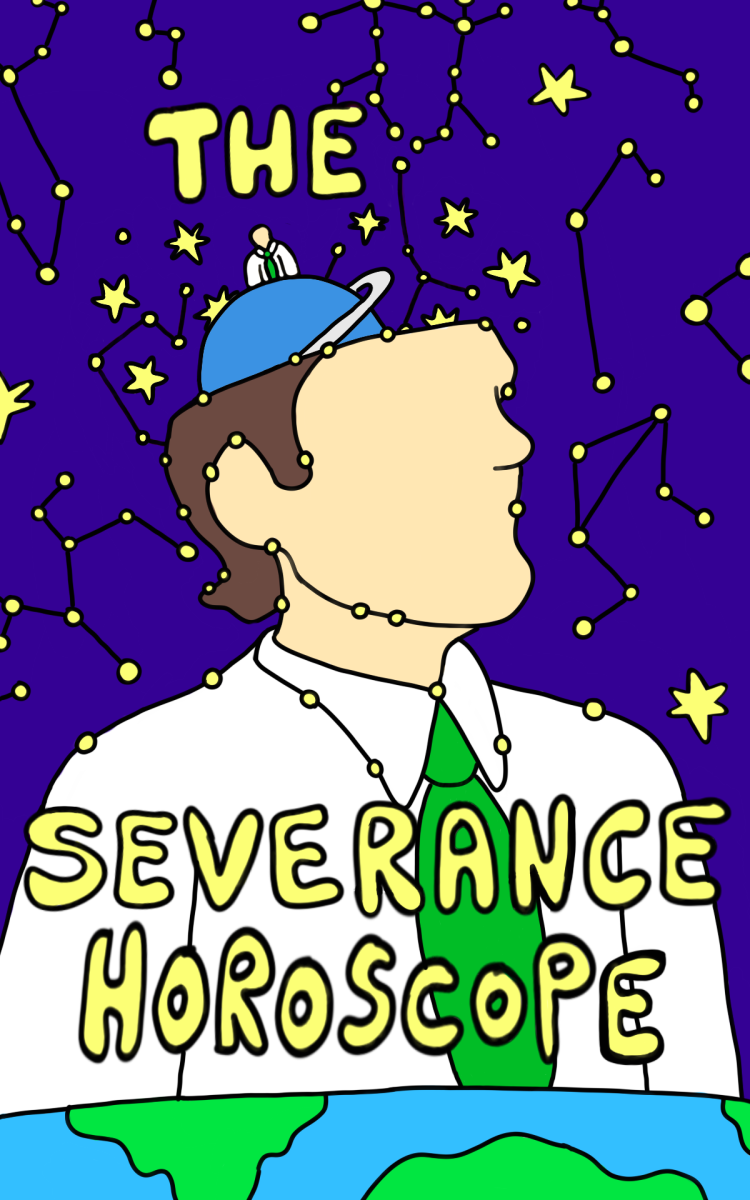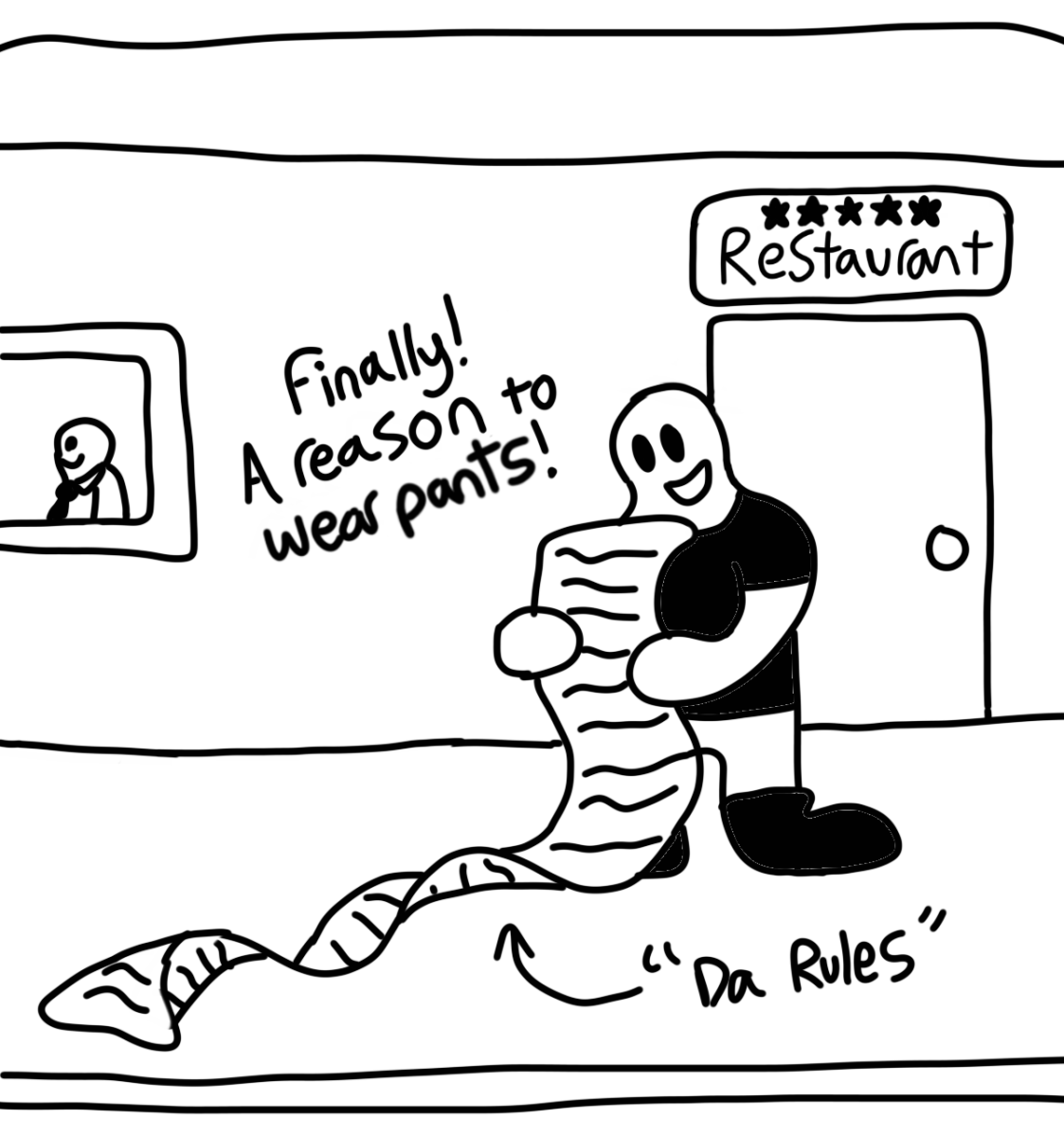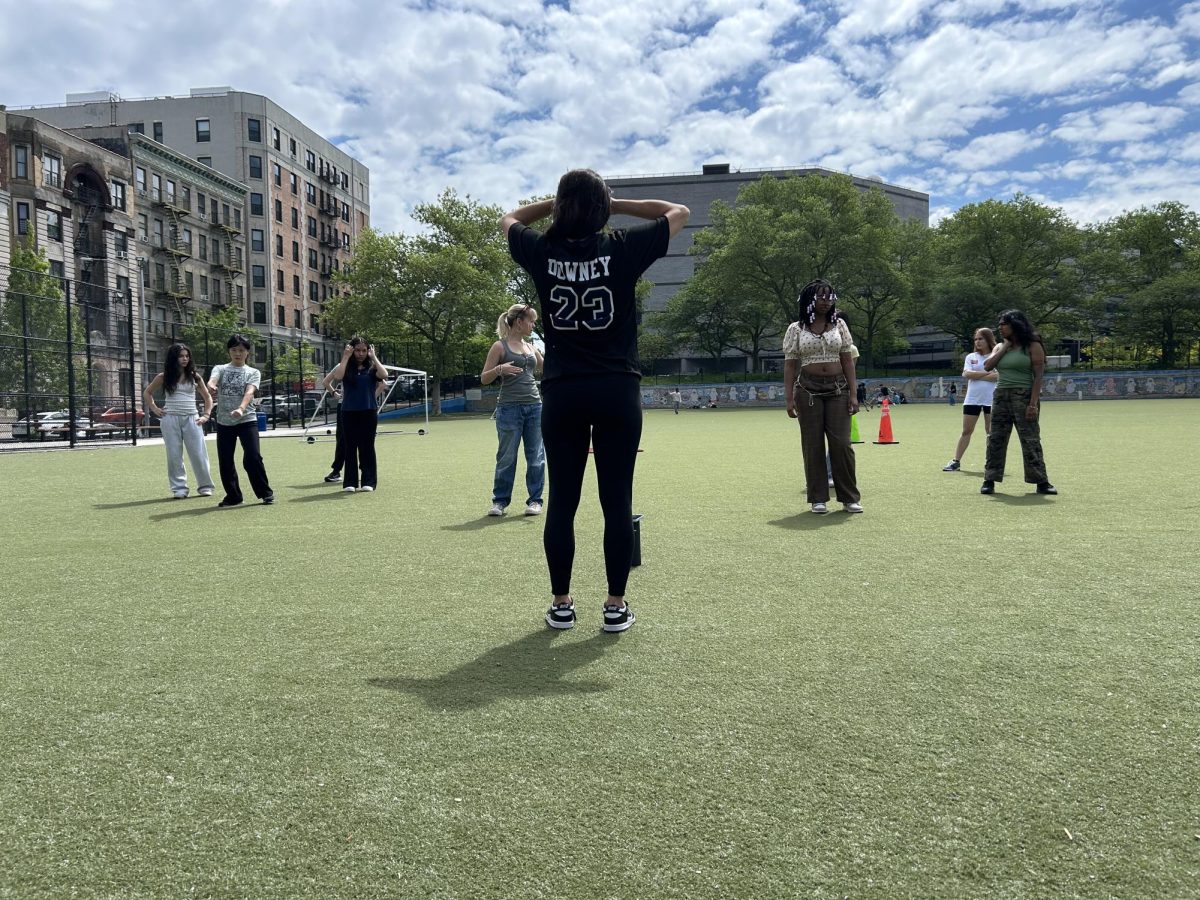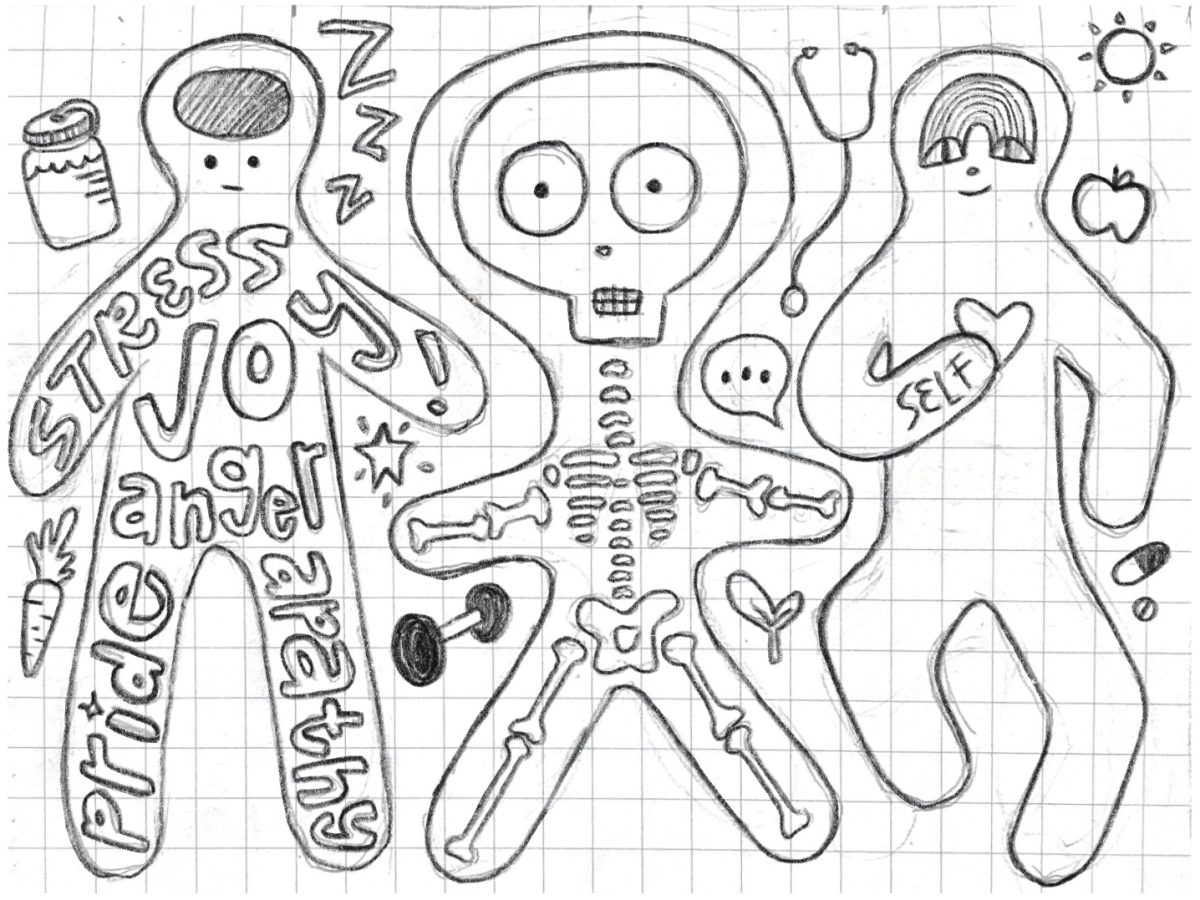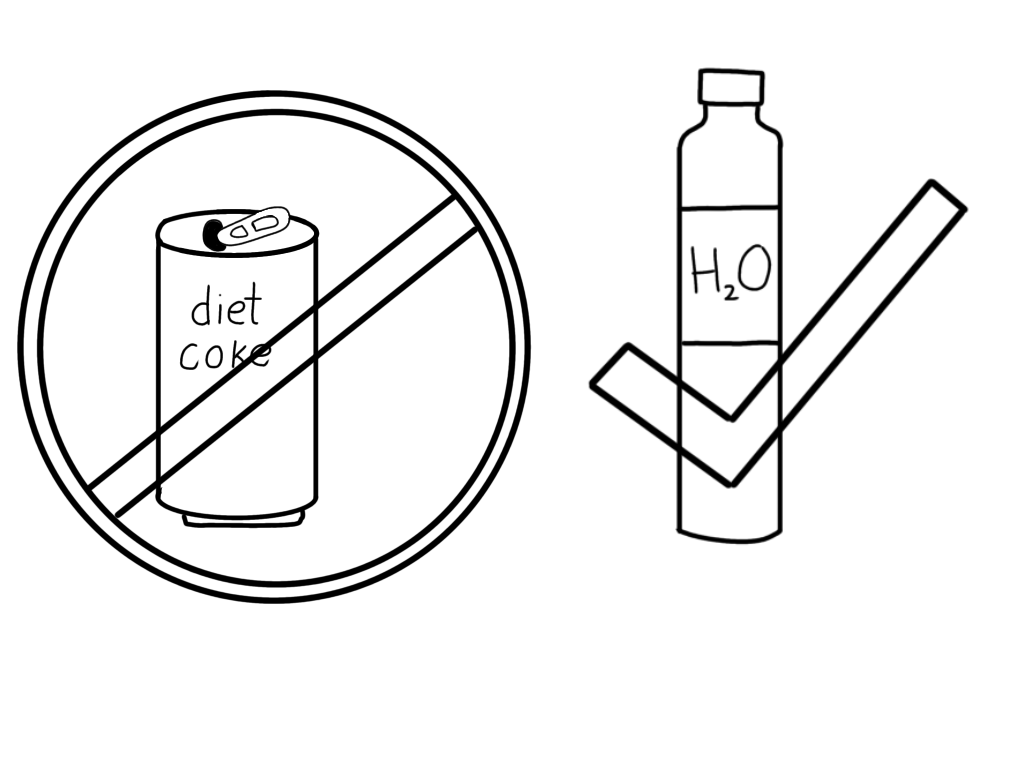If you know me, you know I love Diet Coke. Over the past seven years, I have consumed upwards of 2,392 of them. That’s an average of 300 Diet Cokes per year! But recently, I decided I should cut back. I personally don’t believe that Diet Coke posed any outsized risk to my health: While researchers found that 100 mg/kg body weight of aspartame is linked to increased cancer risk in rodents, the US acceptable daily limit for aspartame is 50 mg/kg body weight, and you would have to drink 17 cans of Diet Coke per day to reach that. That doesn’t mean I think drinking lots of diet soda is good, though. At some point, I just wanted to stop feeling like I couldn’t go a day without drinking at least one Diet Coke.
But how could I break such a deeply ingrained habit? Contrary to popular belief, breaking habits takes a lot more than just “willpower” or “self-control.” According to Dr. Judson Brewer, author of Unwinding Anxiety (the only self-help book I have ever read through), habits are formed in your brain through a system called reward-based learning: You do something, it feels good, and your brain commits it to a sort of unconscious muscle memory. Even though my third Diet Coke of the day doesn’t taste nearly as good as the first one (and makes me feel kind of over-caffeinated), I’m not paying attention to that new information. I’m drinking the third Diet Coke because my brain is telling me that since Diet Coke tasted good at some point, I should automatically continue. That’s habit, and habit is powerful. Relying on willpower to stop a bad habit requires constant attention and deprivation. If you’re stressed out or overwhelmed, that willpower is unlikely to be available.
Rather than trying to fight your reward-based learning pathways, the best way to end a bad habit is by working with them and giving your brain a better alternative or a more rewarding habit. For habits that feel really bad even in the short term, realizing how it makes you feel is sometimes enough to start getting rid of it. Take worrying, for example (because that can be a habit too): Most of the time, the mental burden that comes with extra worrying heavily outweighs any positive that overthinking can bring. And while knowing that isn’t enough to stop me from worrying, it helps me redirect in the moment to be like, “oh … I’m doing this because I want to be prepared for everything, but this isn’t actually helping. I’m going to try to do something else.” But not every habit feels bad immediately. Some of them, like drinking Diet Coke, feel pretty good! However, paying attention to your physical sensation can still be useful in that context because it allows you to consider whether the habit actually feels good or whether your reward-based learning pathways are making a mediocre experience seem better than it actually is.
One thing I am currently doing to pay more attention to my behavior is using the Finch app, which incentivizes self care by tying your goals to the growth and happiness of a little bird persona. When you complete a goal you set for yourself or send appreciation to a friend, you get energy and stones that allow your bird character to accumulate outfits and decorate its room. It sounds silly, but it’s surprisingly effective at getting me to eat more food, take better care of my body, and cut down on screen time (I really like “winning” at self care—not that that’s a real thing). Using the Finch app has forced me to quantify how much I actually like Diet Coke—do I want to drink unlimited amounts of soda today, or do I want five energy points? I’ve started to realize that while I occasionally really do enjoy a soda, I mostly drink Diet Coke when I’m thirsty or emotionally overwhelmed. Being overwhelmed is tough to deal with—and I would argue that having an extra soda when stressed isn’t the end of the world by any means—but it was and is embarrassing to realize that what I thought were Diet Coke cravings were actually just my body telling me to drink water. Since I began acknowledging that there are reasons behind my high soda intake that went deeper than “I want Diet Coke really, really badly,” my soda consumption has decreased from around 20 to around 9 cans per week. That’s still not optimal, but it’s progress.
Bad habits are pervasive—we all have them. Whether it’s going on your phone, drinking your favorite soda, or worrying constantly, everyone has something that they just can’t quit, and it doesn’t have to be an actual addiction to negatively impact your life or consume too much of your time and money. If you’re trying to step back from a habit that isn’t helping you, don’t start shaming yourself about it or expect an immediate, drastic change. We’re all works in progress, and change needs to happen over time! Start by being curious, and pay attention when you’re doing the habit. Why specifically are you doing it? Is it gratifying? A lot of the time, bad habits happen when we are tuned out and acting mindlessly. If you pay attention when you’re doom-scrolling on your phone or drinking your third Diet Coke of the day (ok, maybe that one is just me), you might notice that it’s not actually as enjoyable or productive as your brain told you it would be. That’s the first step towards change! But just remember: progress is not linear or easy, and it’s okay to feel frustrated or have days where you don’t reach your goals. The most important thing is to be consistent and keep trying; when it comes to breaking a habit, continual trial and failure is way more effective than going big or going home.














